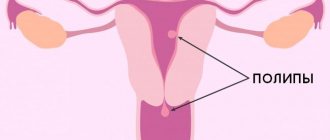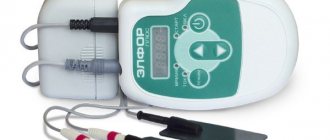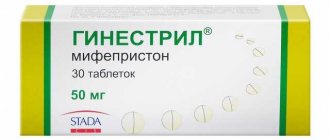General concept
Preeclampsia, or late toxicosis, develops in women carrying a baby in 16% of cases. This is a dangerous pathological condition that, without proper treatment, leads to malformations of the embryo. As a rule, such a pregnancy disorder is recorded in the third trimester, but in some cases symptoms appear in the middle of the second trimester.
Signs of late toxicosis do not always appear clearly, so it is difficult to make a timely diagnosis. If the expectant mother has swelling, feels dizzy, or is very tired, this is a reason to contact a supervising specialist for additional examinations. If measures are not taken in time, a convulsive syndrome occurs, which is dangerous for both the life of the girl and her child.
In the second trimester
Gestosis of the second trimester of pregnancy begins, as a rule, from the 20th week. In the second half of this period, a woman may feel bouts of nausea, notice swelling of the limbs and surges in blood pressure. In addition, the expectant mother is worried about weakness and fatigue, even on days when she is fully resting. Such changes in well-being are a reason to contact a gynecologist to order tests. If, when examining urine, protein is found in it, it means that late toxicosis has begun, which requires treatment.
In the later stages
Late toxicosis, developing in the third trimester, has more pronounced symptoms. The expectant mother reports a constant increase in blood pressure and severe swelling, which is noticeable even in the morning. Only a doctor can prescribe corrective therapy and assess the risk for the child and mother after additional examinations. In some cases, specialists decide on early delivery by cesarean section in order to save the lives of the girl and her baby.
Main reasons
Scientists have not yet been able to reliably establish why exactly some pregnant women develop toxicosis in the later stages. However, after conducting research, they identified risk groups in which such pathology most often occurs when carrying a child.
These include:
- Overweight expectant mother. It is believed that if a woman has gained more weight than the recommended norm in the first two trimesters of pregnancy, she has a higher risk of developing preeclampsia in the later stages.
- Hereditary predisposition. According to statistics, in those girls whose mothers and grandmothers had gestosis during pregnancy, the pathology is recorded more often.
- Poor nutrition and harmful working conditions. During the period of gestation, special attention is paid to the quality of nutrition, excluding animal fats, smoked foods and sweets from the diet, as they provoke an increase in blood pressure and lead to fluid retention in the body.
- Disturbances in the functioning of the cardiovascular system. If, even before conceiving a baby, a woman was diagnosed with pathologies of the heart and blood vessels, with a high degree of probability she will encounter late toxicosis during pregnancy.
- Multiple pregnancy. If a girl is carrying two or three babies, the load on all body systems increases, and this leads to a pathology such as gestosis.
- Chronic kidney diseases. In this case, there is an exacerbation and fluid retention in the body of a pregnant woman.
- The age of the expectant mother. According to medical statistics, women under 19 and over 30 years of age are more likely to encounter pathology when carrying a child.
- Preeclampsia during a previous pregnancy. In the case where a girl has already had a diagnosis of gestosis during her first pregnancy, there is a high probability that she will encounter it in subsequent pregnancies.
- Iron-deficiency anemia. With low hemoglobin, the blood is poorly saturated with oxygen and nutrients, which, in turn, leads to the development of late toxicosis.
- Delayed development of the embryo. If the formation of the fetus occurs with deviations, a pathology such as gestosis often occurs.
- Incompatibility of mother and child by Rh factor. In this case, the mother’s body perceives the fetus as a foreign body and tries with all its might to reject it. In this case, symptoms of late toxicosis appear.
What is late toxicosis, and who is at risk?
Symptoms of gestosis
Late toxicosis or gestosis is a pathology that occurs in the second half of pregnancy and is accompanied by disturbances in the functioning of the nervous system, endocrine, cardiovascular, hematopoietic and other systems. As a result of progressive gestosis, pregnancy can end in premature birth or fetal death in utero. Most often, toxicosis in late pregnancy is accompanied by edema, proteinuria and increased blood pressure.
Fortunately, gestosis does not occur very often; according to obstetric statistics, this pathology is detected in approximately 10% of pregnant women.
Important! Late toxicosis in pregnant women can occur latently or its symptoms will be mild, and the expectant mother simply will not attach any importance to them. Pathology can be identified by regularly taking urine tests and measuring blood pressure, and for this, a pregnant woman should regularly visit an antenatal clinic.
The risk group for the development of gestosis in the second half of pregnancy includes:
- women with kidney and thyroid diseases;
- women suffering from arterial hypertension;
- pregnant women who have gained too many kilos in a few months;
- woman's age over 35 years;
- pregnant women who carry several fetuses at once;
- Iron-deficiency anemia;
- Rh conflict between mother and fetus;
- women who are diagnosed with intrauterine growth retardation;
- pregnant women who smoke (including passively) or drink alcohol.
Therefore, it is important to control every kilogram gained
Also susceptible to the development of gestosis are pregnant women who experienced late toxicosis earlier when they were carrying a previous pregnancy.
Symptoms and signs
The symptoms of late toxicosis directly depend on the severity of the pathology. But there are also general signs that you should pay attention to. These are surges in blood pressure, swelling and protein in the urine. Also symptoms of gestosis in recent months are weakness and drowsiness of the expectant mother.
With this pathology, spasm of all blood vessels occurs, and blood circulation in the body is disrupted. Such changes lead to oxygen starvation, which negatively affects the functioning of many organs - the brain, kidneys, placenta and heart.
Prevention and treatment of toxicosis
The key direction in the prevention of toxicosis involves proper nutrition and bed rest, maintaining rest for the nervous system, proper rest, regular walks in the fresh air, treatment of all diseases at the stage of development.
In case of late toxicosis, a special role is given to the nutrition of the pregnant woman; the menu should contain enough protein, boiled meat, dairy products, and hard-boiled eggs. Despite the appearance of edema, it is impossible to reduce the amount of fluid taken so as not to cause blood thickening.
It is necessary to reduce the amount of salt consumed, remove from the diet all heavy foods, fried, fatty, sour, spicy, canned foods. In case of toxicosis, treatment is contraindicated, especially using traditional healing methods.
The psychological experiences of the mother play an important role, therefore it is important that a positive attitude always accompanies the woman, despite the difficulties that arise.
Attention! You should not panic when you discover such a diagnosis; it is important to pull yourself together and strictly adhere to the doctor’s recommendations; the effectiveness of the entire treatment and the health of the mother and baby depend on this.
Forms and degrees
Doctors divide gestosis during pregnancy into two forms - typical and atypical:
- The first category includes dropsy and nephropathy of all degrees, preeclampsia and eclampsia. Essentially, these are stages of the same process.
- The second category includes eclampsia not accompanied by seizures, monosymptomatic nephropathy, and also with the presence of two signs.
The first stage of the typical form of late toxicosis in pregnant women is characterized by the presence of one symptom - swelling. They appear throughout a woman's body. These are the upper and lower limbs, the face and the anterior wall of the abdomen. At the same time, the general well-being of the expectant mother does not change, only in rare cases (with severe swelling) does a feeling of heaviness occur. A strong thirst also appears, the girl begins to get tired quickly.
In the initial form of gestosis in pregnant women, blood pressure does not increase, and may even be slightly reduced. In the absence of timely treatment, dropsy develops into the next form - nephropathy.
At this stage, edema is accompanied by 2 more symptoms - increased blood pressure and the appearance of protein in the urine (proteinuria). However, the main sign of nephropathy in pregnant women is considered to be hypertension; blood pressure can rise to 200/150, and in some cases even higher. The severity of this stage is assessed using a special scale, which characterizes the condition of the expectant mother at the time of examination by a specialist.
One of the most dangerous stages of late toxicosis in pregnant women is preeclampsia. To the previous symptoms are added headache and dizziness, poor night sleep and loss of strength, apathy and heaviness in the back of the head. Also, from time to time, the woman notices the flickering of “flies” before her eyes, an upset stomach, which is accompanied by nausea and vomiting. With preeclampsia, any irritant can trigger a transition to the stage of eclampsia, which poses a threat to the life of a pregnant woman.
The last stage of gestosis is divided into 4 stages:
- The first one has a duration of about 20-30 seconds. During this period, twitching of the facial muscles is noticeable.
- The second stage has the same duration and is characterized by tonic convulsions. In this case, biting the tongue and stopping breathing may occur.
- At the third stage, which lasts about 2 minutes, clonic convulsions appear, bluish skin and breathing problems occur. Also at this time, saliva mixed with blood appears from the mouth.
- At the fourth stage, a deep breath occurs and the respiratory process is gradually restored, but the pregnant woman may still be unconscious.
If untimely medical care is not given, eclampsia leads to the development of a stroke in a pregnant woman.
Features of the treatment of toxicosis
The main reason for its appearance lies in the excessive load on the mother’s entire body, all systems begin to experience stress, and energy starvation occurs. The occurrence of symptoms of toxicosis indicates the body’s needs from the outside, and therefore it is necessary to provide it with this support.
- Change your daily routine, try to go to bed earlier, and make time for a nap.
- Review the composition and diet, remove all heavy carbohydrates and unhealthy foods from the menu, introduce more fiber, plant foods, healthy proteins and fats.
- Healthy lifestyle.
- Long walks in the fresh air.
- Watching kind and pleasant videos without stressing the nervous system.
Therapeutic therapy for toxicosis is aimed at improving metabolic processes, reducing intoxication, and normalizing the patient’s general condition. It is best for a pregnant woman to be in a hospital, especially if severe toxicosis is present.
We wish you health and excellent well-being!
Treatment methods
Therapeutic tactics for managing a pregnant woman with late toxicosis depends on the form of the pathology. Dropsy and nephropathy can be treated at home; preeclampsia and eclampsia require the patient to be admitted to a hospital under 24-hour medical supervision.
Hospital treatment
If the pregnancy has reached 37 weeks, in severe forms, doctors decide to stimulate delivery. In the case where the baby's lungs are not fully mature, their maturation is stimulated by administering special medications.
Expert opinion
Perchatkina Galina Viktorovna
Doctor of the highest category. Our best expert.
Ask a Question
In case of eclampsia, a woman urgently undergoes a caesarean section, since in this case there is a high risk of death of both mother and child.
If a pregnant girl feels well and her blood pressure is not much higher than normal, drug treatment is carried out aimed at combating edema and hypertension.
Medicines
Drug treatment depends on the severity of symptoms and the presence of concomitant diseases. Based on additional examinations, the doctor prescribes an individual course of therapy. If kidney pathologies are diagnosed, diuretics approved during pregnancy are prescribed. If spasms are present, valerian or motherwort is additionally prescribed. Blood thinning medications may also be prescribed.
If a woman is diagnosed with gestosis during pregnancy, under no circumstances should she self-prescribe medications, as this will harm the baby. Treatment of late toxicosis occurs only under the supervision of a specialist.
Unconventional methods
It is impossible to completely cure gestosis during pregnancy using folk remedies or unconventional methods. Moreover, the use of such methods will only worsen the situation. In addition to the course of therapy prescribed by the doctor, it is necessary to make changes to the diet. Completely avoid fried and smoked foods. All dishes must be boiled or steamed. Exclude fatty meat, sweets, fast food, canned food and sausages from the diet.
To remove excess fluid from the body during edema, prepare dried fruit compote or lingonberry or cranberry juice.
How to treat late toxicosis of pregnant women?
Early and late toxicosis in pregnant women is a reason for increased monitoring of the expectant mother, frequent visits to the antenatal clinic, and regular testing. This will help to identify whether toxicosis is developing, and if so, take appropriate measures in time.
Treatment of gestosis largely depends on the form of the pathology and the severity of its course. Edema or dropsy can be treated at home, following all the doctor’s recommendations.
The main principle of therapy in this case is limiting salt in the diet and drinking enough clean water. Spices, spicy foods, fatty foods, flour, baked goods are excluded from the diet - all these products contribute to fluid retention in the body and the progression of edema.
Nephropathy, preeclampsia and eclampsia require hospitalization of the expectant mother in the pregnancy pathology department or in the intensive care unit of the maternity hospital.
Trust a specialist
Treatment of severe gestosis consists of following the following recommendations and prescriptions:
providing the pregnant woman with complete psychological and physical peace
– the light should be dim, conversations should be in a low voice;
droppers with glucose solution and B vitamins
to support the child;
drugs that improve placental function
(the instructions for the drug describe in detail the properties and composition of the drug);
diet
– a pregnant woman’s diet should be light, but fully balanced, in order to satisfy the body’s daily need for proteins, carbohydrates, fats, and vitamins.
With the progression of gestosis and the development of eclampsia, the doctor decides to deliver the woman by cesarean section and nurse the child in special conditions. Of course, the gestational age is also taken into account; it is important that the baby is born viable.
Indications for cesarean section for late gestosis are the following conditions:
- severe nephropathy in pregnant women, which is not eliminated with medication and progresses;
- preeclampsia and eclampsia;
- comatose state of a pregnant woman;
- retinal detachment due to high blood pressure;
- hemorrhages in the eyes;
- anuria – absence of urine for more than 8-12 hours, this symptom in most cases indicates the development of acute renal failure;
- hemorrhages in the brain or spinal cord;
- placental abruption, acute fetal hypoxia.











